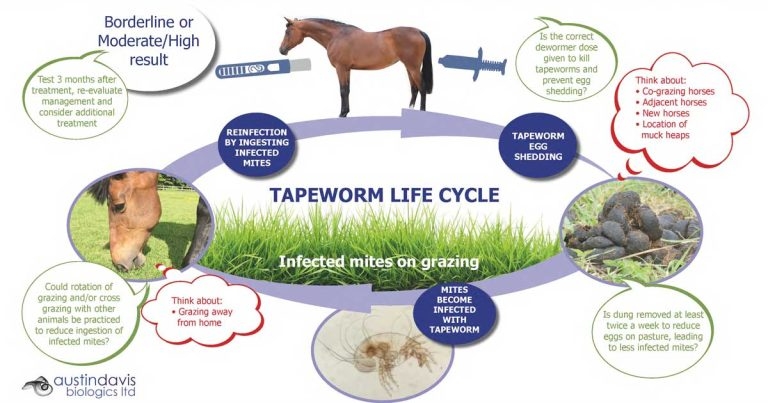10 Nov 2023
Advice has been reissued to owners after an American study raised fears of a potential decline in effectiveness from the two main treatments available in the UK.

The plea has been issued by Austin Davis Biologics (ADB), after recent research from the University of Kentucky raised concerns that “the first signs of another lurking anthelmintic resistance” may be emerging.
The concerns relate to the effectiveness of praziquantel and pyrantel, which are the only drugs currently licensed for equine tapeworm control in the UK.
In response to the study, ADB has reissued its guidance for owners on the appropriate use of EquiSal saliva testing, particularly where scores are found to be moderate or high.
ADB director of veterinary science Jacqui Matthews said: “In horses that report with a borderline or moderate/high saliva score, their management should be evaluated to determine what improvements could be made to help prevent tapeworm reinfection from the pasture.
“As part of this evaluation, a follow up test can be performed 3 months after treatment to provide information on whether or not reinfection is occurring.”
The company has released a graphic to indicate where reinfection risks arise and urging owners not to repeatedly test and treat without considering management practices because of the resistance threat.
Prof Matthews said pasture management improvement measures should be implemented, as well as appropriate treatment, where horses test positive in follow-up examinations.
She said: “All co-grazing horses should be tested at the same time in case they act as a continued source of tapeworm eggs.
“The best approach to prevent wormer resistance is to evaluate and implement improved pasture management to move to a situation where recurring reinfection is considerably reduced.”
She added that further veterinary advice should be sought if saliva scores remain high, even where improvement steps have been taken and pasture management is felt to be suitable.